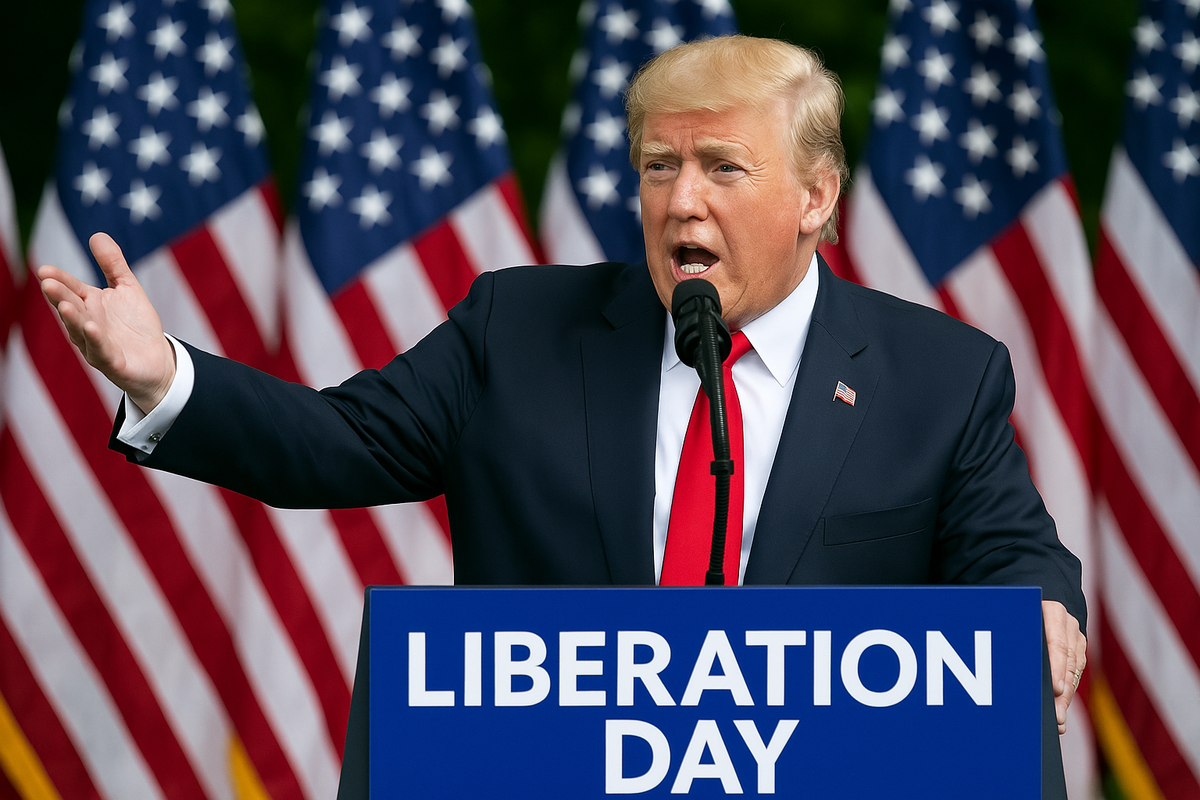
Vancouver, BC - April 1, 2025 - President Donald Trump has declared April 2 as "Liberation Day," a moment when he plans to roll out a sweeping set of tariffs aimed at reducing the United States' reliance on foreign goods. Trump argues that these tariffs will protect American jobs, encourage domestic production, and level the playing field against countries that have imposed high import taxes on U.S. products. However, economists warn that the tariffs could lead to higher consumer prices, increased production costs, and potential trade retaliation from other nations.
In Trumps own words as seen on the "America First Trade Policy Website": "My Administration treated trade policy as a critical component to national security and reduced our Nation’s dependence on other countries to meet our key security needs. Americans benefit from and deserve an America First trade policy. Therefore, I am establishing a robust and reinvigorated trade policy that promotes investment and productivity, enhances our Nation’s industrial and technological advantages, defends our economic and national security, and — above all — benefits American workers, manufacturers, farmers, ranchers, entrepreneurs, and businesses."
A little aside here is that in 2024, the U.S. imported around 2 million tons of northern bleached softwood kraft pulp (NBSK) from Canada, which constitutes about 30% of standard U.S. bathroom tissue and 50% of paper towels. And this is just one example! According to trade data, the US imported about $850 million worth of toilet paper and similar paper products from Canada in 2024, out of a multi-billion-dollar market (the total U.S. toilet paper market is valued at around $9-10 billion annually). This suggests Canada supplies 10-15% of finished toilet paper products in the USA. Posts on X from late March 2025 reflect growing concern, with some predicting shortages by summer if tariffs escalate, though this is speculative.
The concept of "Liberation Day" is rooted in Trump's long-standing criticism of global trade policies. He has frequently claimed that the U.S. has been at a disadvantage in international trade, citing tariffs imposed by other countries on American exports. The president's proposed measures include "reciprocal tariffs," which would match the rates charged by other countries, along with additional levies on goods such as pharmaceutical drugs, copper, lumber, and microchips. Trump has also expanded his 2018 steel and aluminum tariffs, imposing a 25% tax on all imports in these sectors. Additionally, he has announced a 25% tariff on auto imports, arguing that foreign automakers have unfairly benefited from the U.S. market while contributing little in return.
Currently, the economic impact of these tariffs remains uncertain. While Trump insists that they will incentivize companies to invest in American manufacturing, analysts warn that they may instead lead to higher prices for consumers. Economist Art Laffer estimates that auto tariffs alone could raise the price of a vehicle by $4,711. Meanwhile, Goldman Sachs predicts that U.S. economic growth could slow significantly as a result of the new trade restrictions. Treasury Secretary Scott Bessent has stated that the tariffs will be a "one-time price adjustment" rather than a long-term inflation driver, but others fear that rising costs could lead to reduced consumer spending and a potential recession.
Looking forward, the success or failure of "Liberation Day" will depend on how global markets and foreign governments respond. If key trading partners retaliate with their own tariffs, it could trigger a full-scale trade war, further disrupting supply chains and slowing economic growth. Alternatively, if Trump's stance leads to renegotiated trade deals, it may bring about the economic transformation he envisions. Some aides suggest that the tariffs are tools for negotiation, while others argue that the additional revenue will help reduce the federal budget deficit.
The idea of celebrating economic independence through trade policies is not unique to the United States. Canada and other Western nations have also engaged in trade battles over the years. Notably, the Windsor–Detroit International Freedom Festival, once a joint celebration of Canada Day and U.S. Independence Day, symbolized the interconnectedness of both economies. However, the event was discontinued in 2007 as Windsor and Detroit pursued separate celebrations, highlighting the complexities of cross-border economic relations.
Ultimately, "Liberation Day" to be held for the first time on April 2, 2025, represents a major shift in U.S. trade policy. Whether it brings economic prosperity or unintended consequences remains to be seen. For more information on the potential impact of these tariffs, visit National Trade Policy.
#Liberation Day, #Trump Tariffs, #Trade War, #US Economy, #Tariffs, #American Manufacturing, #Global Trade, #Economic Independence
Connect with Elke at Westcoast German Media or on LinkedIn: Elke Porter or contact her on WhatsApp: +1 604 828 8788
